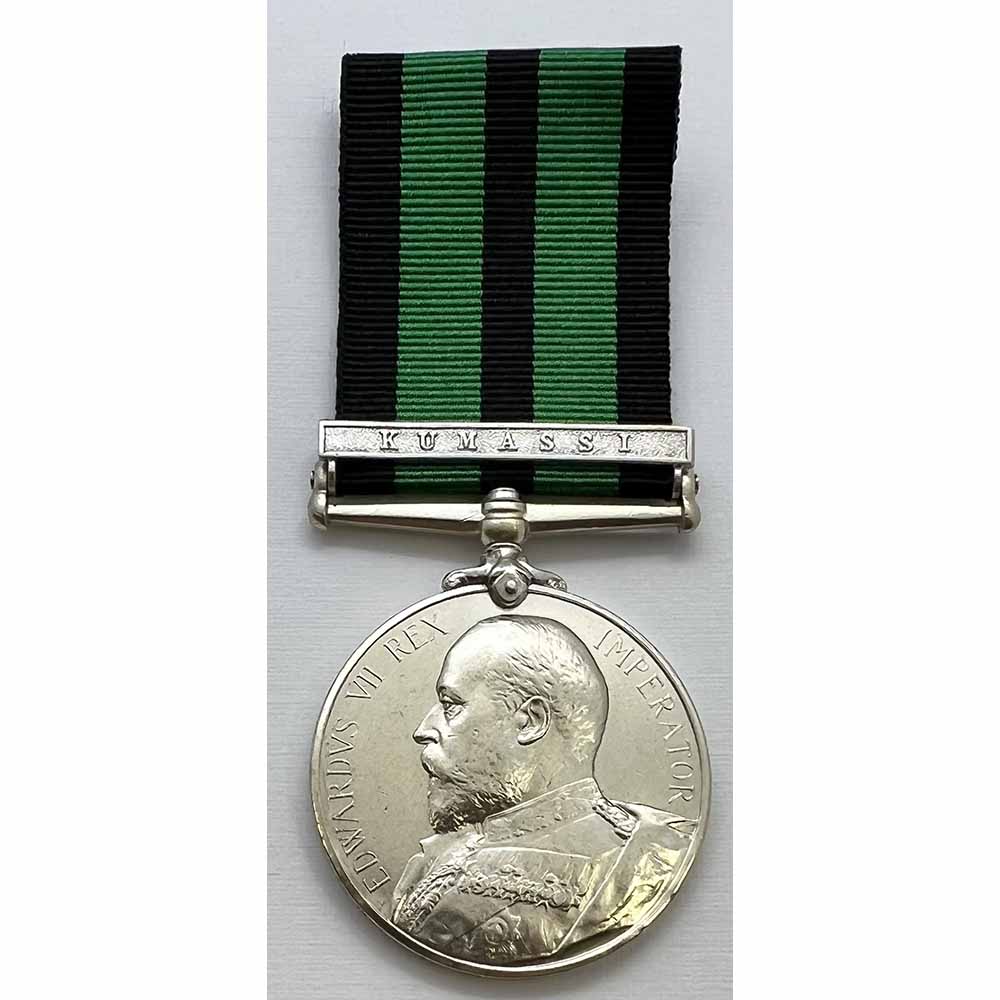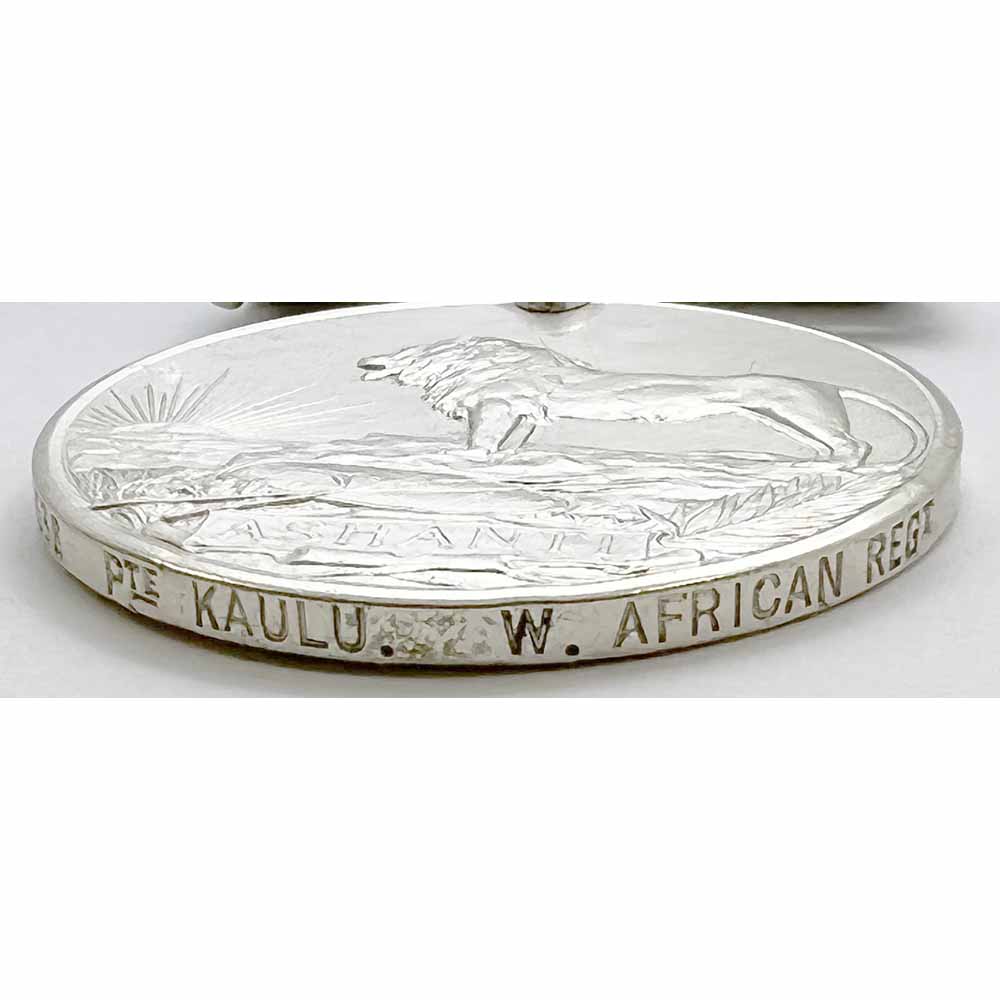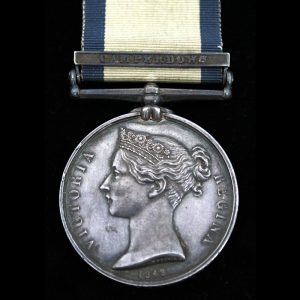Description
Ashanti Medal, bar Kumassi, High Relief Bust, 1536 Private Kaulu, West African Regiment. Confirmed on the roll.
Officially impressed: “1536 Pte Kaulu W. African Regt”
A well preserved example with no edge knocks.
A scarce Ashanti medal named to the new “West African Regiment” only formed in 1898 and quickly mobilised to take Ashanti into British Hands in the taking of Kumassi. After the war a large amount of the soldiers from the regiment, who were sick and tired of the empty promises from their employers of lack of pay, took matters into their own hands and mutinied, in a 3 week long dispute where they fired upon British Troops known in England as the “Coomassee Mutiny”.
Following the extensive and bloody war known as the “War of the Golden Stool” sparked by the British who in a rather ridiculous command, the Governor of the Gold Coast, Sir Frederick Hodgson demanded that his forces begin an expedition to find the “Sika Dwa Kofi” the Golden Stool, the Royal and Divine Throne of all Kings of the Ashanti People, so that he could sit on it.
Upon Hodgson arriving in Ashanti, and making an incredulous speech to the chiefs, demanding that the stool be delivered to Queen Victoria. The speech was delivered in silence, as soon as the Chiefs arrived home they began preparations for war.
Following their victory and the British taking of Kumassi, they exiled most of the Chiefs and King of Ashanti, who did not return until 1924.
Notably after the war, the Kumassi Mutiny arose from the soldiers of the West African Regiment.
On the 18th March 1901 whilst in Kumassi, the native troops from the West African Regt mutinied and fired on British troops. This persisted for 3 weeks as the men had not been paid for months despite constant promises from the British Government.
The West African Regiment was stationed in Kumassi in order to keep the peace and used the collective arms and muscle to defy and threaten the new British authorities which employed them.
After months of empty promises from the British Government, even after they fought heavily in the recent war to take Ashanti into British control.
In total 60 men were found absent at first, with another 178 men disappearing the next morning.
The violence lasted 3 weeks, when the soldiers fire on British Troops they returned first, with 12 Mutineers being killed.
Eventually they were tried under the Army Act of 1881, sentenced and imprisoned in Sierra Leone, a dozen were sentenced to be executed by firing squad, but the sentence was later commuted and reduced to penal servitude.
There were 134 soldiers who were imprisoned following the mutiny.






